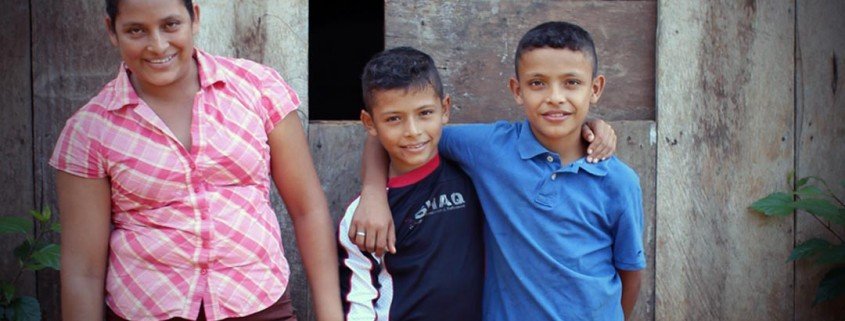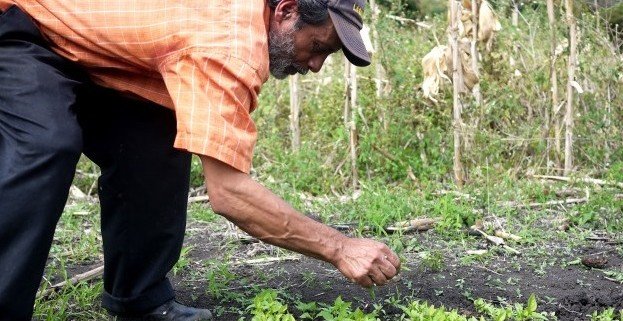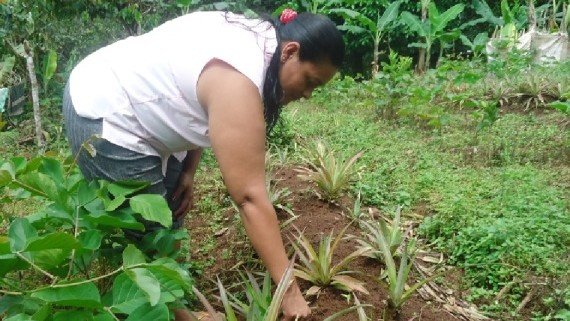Nicaragua’s rainy season is getting shorter, summers are hotter, and long-trustworthy climate cycles are less consistent.
So times are especially hard in San Francisco Libre, a region of the country where soil quality and lack of water has always caused challenges for farmers. CEPAD trains farmers to help them learn to overcome the environmental pressures they face.
“CEPAD taught me how to make banks and ditches with the soil to trap water and protect the plant roots,” said Arnulfo Jose Espinoza Gonzalez, who has been a farmer in the region for 13 years. “CEPAD helped me buy barrels to collect water, too. I’ve seen a big change in my plants.”
Since incorporating what he learned from CEPAD, Arnulfo said he is able to grow some crops for the first time, and his corn and plantain yields are rising. Support from CEPAD donors has meant more income for Arnulfo and his wife and five kids. He said he’s less worried about how they will care for their new baby. In a meeting with farmers from around the region, CEPAD and representatives from ACT Alliance led a workshop with farmers to identify the risks they faced and possible solutions.
Farmers were excited to learn about opportunities to seek funds from CEPAD and from local governments to install irrigation systems. Farmers in San Francisco Libre are committed to working with a changing climate to ensure they can continue farm work to provides food and income. CEPAD will be there with training to give farmers in harsh regions a shot at success. In the future, Arnulfo hopes he can quit his other job at a roof tile manufacturing plant and farm full time to earn enough to feed his children and pay for their school.
“I am a farmer in my heart,” he said. “I’m learning how to work with the climate to plant crops that will grow well, and my income from the farm is increasing a little bit. With God’s help, I will keep fighting.”
Arnulfo’s pride in his new plants reminds us why we keep fighting, too. Thank you for your continued support of CEPAD’s work! You make a difference in the lives of rural Nicaraguan families every day.





